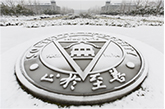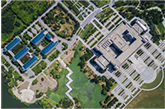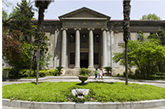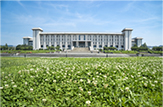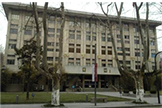Cui Tiejun is a professor and PhD Supervisor from School of Information Science and Engineeringof SEU, Yangtze River scholars Distinguished Professor of the Ministry of Education, and he was awarded the National Outstanding Youth Science Fund in 2003.
Cui Tiejun conducted systematic research on metamaterials, and creatively proposed new ideas for using digital codes to characterize metamaterials and new methods for controlling electromagnetic waves, which realized digital coding and programmable metamaterials, and could manipulate electromagnetic waves and coded information in real time. It marks the New directions for information metamaterials. He first studied the surface plasmon polariton (SPP) metamaterial from the perspective of microwave transmission lines, and invented an ultra-thin, flexible, stripe SPP transmission line. Compared with traditional microstrip lines, its transmission characteristics can be customized, and the mutual coupling and interference between transmission lines can be significantly reduced. He has developed a series of SPP passive devices and active devices, opening up a new direction of microwave technology based on SPP transmission lines. In the field of traditional metamaterials, fast and accurate design of broadband and low-loss metamaterials has been achieved. It is the first international experiment to verify physical phenomena such as “electromagnetic black holes” and three-dimensional broadband “stealth cloaks”, which solves the application of metamaterials in certain defense applications, which solves the bottleneck problem of metamaterials in some defense applications and is used in the development of weapons and equipment in China's aerospace, aviation and shipbuilding sectors.
He has published more than 400 related papers in Science, Nature journals, the Proceedings of the National Academy of Sciences, and PRL and published 3 monographs. His papers have been cited by SCI more than 10,000 times, and he has authorized 63 national invention patents. As the first finisher, he won the Second Prize of National Natural Science in 2014, the Second Prize of National Natural Science in 2018, the First Prize of Scientific and Technological Progress in the Army in 2016, and the First Prize of Natural Science of the Ministry of Education in 2011.








